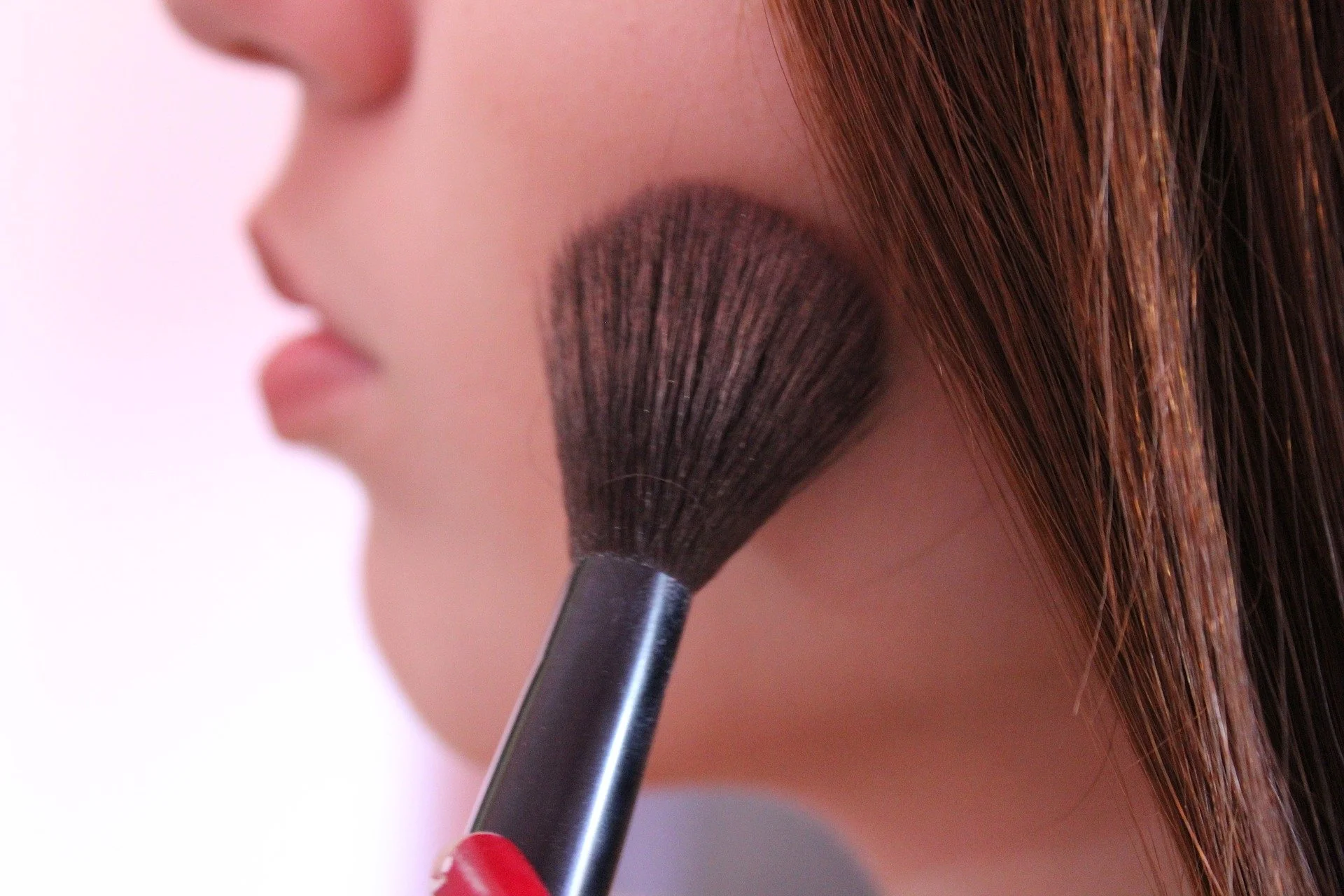Ask Yourself These Questions If You Are Feeling Unwell
If you find yourself regularly becoming ill then you may have a problem with your immune system. It could also be due to something related to your health and wellbeing. Ask yourself the questions below to get to the root cause.
If you find yourself regularly becoming ill then you may have a problem with your immune system. It could also be due to something related to your health and wellbeing. Ask yourself the questions below to get to the root cause.
What Are You Eating?
The type of food you eat can have a lasting effect on your body and how you feel. If you eat a lot of unhealthy junk food then your body will be missing vital nutrients it needs to focus and function. Your diet should be healthy and balanced consisting of all the basic food groups. These include carbohydrates, proteins, fats, dairy, fruits, and vegetables. Try filling your plate with as much fruit and veg as you can with every meal. These will keep you fuller for longer and prevent you from reaching for junk food. Of course, you can enjoy junk food in moderation, just like with everything.
If you are worried you are not getting enough nutrition from your diet then you could increase this by taking a daily supplement. You can buy these over the counter at supermarkets and drugstores. It might be worth making an appointment with your doctor, you may be suffering from something where your body doesn’t absorb the nutrients from food. This will need investigating and testing carried out.
Are You Drinking Enough?
Your diet isn’t the only important factor in making sure your body and mind are healthy. You should be drinking at least eight glasses of water a day, this equates to around 2 liters. The reason for this is simple. Your body is made up of around 60% water, throughout the day you lose water through many bodily functions. Sweating, breathing, and peeing for example. Drinking water regularly will replace the water that has been lost through these processes. If you don’t drink enough you may feel the effects of dehydration setting in. These symptoms can include feeling lightheaded, dizzy, confused, and lacking concentration. If you notice these happening then it is time to up your water intake.
How Much Exercise Do You Get?
Something else you need to ask if you find yourself feeling under the weather is, are you moving enough? This one can be tricky to judge as if you walk to work then that could be counted as your daily exercise. You need to try and fit at least 30 minutes of vigorous exercise into your daily routine each day. Anything that gets your heart rate up will count towards your exercise for that day.
You might be thinking, I don’t want to go to the gym. Well, the good news is you don’t have to ever step foot in a gym to get a workout. You could go for a run around the local park, or you could go swimming. Swimming is a fantastic workout as you are completely weightless in the water and get a full-body workout at the same time.
Are You Getting Enough Sleep?
This is often overlooked as something that could cause a lot of problems. You need to be careful with lack of sleep as it can wreak havoc with your brain functioning. As an adult, you need to be aiming for at least six to eight hours of solid sleep each night. Getting the right amount of sleep will give your body the chance to recover and recharge overnight. Of course, it isn’t just about how many hours of sleep you get. It is also about the quality of sleep you are getting if you are sleeping for eight hours but it’s disturbed then that’s no good for anyone.
If you are not getting a good quality night's sleep and waking up more exhausted than when you went to sleep then you need to ask yourself why. There can be many causes of sleep disturbances, one such example is an old, lumpy mattress. These should be changed and thrown out every eight to ten years.
Do You Need To See A Doctor?
As with anything, it is always better to get checked out for any problems that may not be in plain sight. The slightest issue could turn into something much bigger, if you find yourself with a lump then get it checked by a professional. You could have something like adult t-cell leukemia, this needs treating as soon as possible so you have the best chance of recovery. As well as visiting the doctor for visible symptoms you should also make sure you are attending regular screenings when you are called for them. For example, bowel and breast screenings.
We hope this helps you on your quest to be happy and healthy. Remember, if you are feeling unwell it is always better to be safe than sorry. Seek out professional advice to put your mind at ease so you can go back to your daily tasks.
Tips to Help You Help Senior Relatives
When you have elderly relatives, whether they are parents, grandparents, or aunts and uncles, it can be worrying when they are no longer able to look after themselves in the same way that they once did.
When you have elderly relatives, whether they are parents, grandparents, or aunts and uncles, it can be worrying when they are no longer able to look after themselves in the same way that they once did. You want to do everything you can to help them, but often you don’t even know where to begin, which is why I’ve put together some tips to help you help your senior relatives whenever they need it.
Listen to them
One of the most important things you can do for your senior relatives is giving them the courtesy of listening to them. They may be older, but unless they have a mental impairment like Alzheimer’s, they are still the person best able to know what they want and need. So, although you might think you know what’s best for them, don’t make decisions without their input if at all possible.
Advocate them
Whether it’s asking their doctor for a second opinion on some worrying symptoms or calling in a nursing home abuse attorney when you think they have been mistreated, one of the best things you can do for your older relatives is to stand in their corner and fight for them when they may be less able to fight for themselves. Just knowing they don’t have to go it alone; that you will always be there to help them, will mean more to them than you could ever imagine.
Check in on them regularly
One of the simplest things you can do to take care of your senior family members is simply to check in on them and see how they are doing as often as possible. Not only will this help to prevent them from falling into a pit of loneliness, which is very common in older people, but it will also mean that if their health starts to deteriorate, you will be more likely to spot it happening and encourage them to get timely help.
Encourage them to stay active
Many older people withdraw from going out and engaging with the world which can lead to a swift decline, so be sure to encourage them to head to the senior center for a game of bingo or to come on a walk on the beach with you or whatever as often as possible.
Take good care of yourself
If you are caring for senior relatives, it is really important that you don’t overdo it, and that you take regular time out for self-care. After all, if you aren’t in good shape, then you won’t be of much use when it comes to helping them. So, whether you like long walks in the park, meditating in the garden, or reading a good book in the bath, make sure that you have plenty of time to just be.
Helping senior relatives can be tricky and it can often feel like a thankless task, but they have looked after you and, as you can see, helping them in their time of need doesn’t have to be nearly as tough as you imagined.
Ways To Take Care Of Yourself
Take some time to tackle a few tasks as a form of preventative maintenance and stress reduction to achieve balance in your life.
There are far too many stressors thrown at you every day. They range from the minutiae in your personal life to the business of a professional persona. Ultimately, regardless of where those stressors lie, you are still one person who has to handle them all. Take some time to tackle a few tasks as a form of preventative maintenance and stress reduction to achieve balance in your life.
Prioritize Your Dental Health
If you have not had a dental visit over the past year due to the pandemic - make one now. You should schedule routine care with a trusted dentist at least annually. Most dentists will recommend you visit twice per year or quarterly, depending upon your specific dental needs. Having a healthy smile goes deeper than showing off a gleaming set of teeth. When your teeth receive frequent inspections and cleanings from a trusted professional, it will benefit your overall health by eliminating dangerous bacteria and plaque from your body.
Of course, you should do your part at home, as well. Make it a routine to brush and floss after every meal if possible. Try making the ritual more exciting by playing your favorite playlist or listening to a new podcast. Carry a travel toothpaste and toothbrush for when you are out of the house to keep your teeth and body healthy.
Find Ways To Reduce Stress
Be proactive in your personal life to reduce stressors. If you find yourself under too many obligations daily, seek out assistance. Should you have a partner or responsible family member who can assist you in care-taking, grocery shopping, or general housekeeping, do not hesitate to ask. Consider trading services with a like-minded friend or neighbor for lawn care or childcare. Sometimes, all you need are a few hours to yourself each week to accomplish tasks, take care of the finances, or relax with a good book. Ask for help when you need it and accept it when it is available. Focusing on your needs will give you a refreshing new perspective to take into the next day.
Reducing stress is imperative in the workplace, as well. If you feel overwhelmed by new technology or processes - ask for help. There is a tutorial for most work-related tasks. If a manual or guide does not exist, consider spearheading an initiative to create one. This will show your supervisors and colleagues that you have initiative and drive. Additionally, you can learn the processes in every step while you detail them for others to gain a greater understanding.
When your workload is too great and you are unable to handle it all, speak to whomever you report to. Before going in, gather your projects and determine which ones you can complete and by what date. Be prepared to present yourself as an asset who can deliver on time, every time, when you have enough time to do so. Sometimes finding a mentor is beneficial in that they have had similar experiences to what you are currently going through. They will be able to relate to your situation and offer their wisdom and encouragement.
Here are a few tips for finding a mentor.
In life, there will always be a responsibility, a stress-inducing situation, or a deadline. Stay on top of routine healthcare by making dental appointments and annual exams. Take time out of each day to accept and offer help. Take care of yourself to take care of your future.
How the COVID-19 Pandemic is Impacting Access to Healthcare
The healthcare system is under mass pressure right now. The finite medical resources available are being stretched to their limits as healthcare staff battle against the full-force of a global pandemic.
The COVID-19 pandemic has caused mass disruption. Each aspect of everyday life has been impacted by the Coronavirus situation, from interpersonal relationships to work-life and job security.
The healthcare system is under mass pressure right now. The finite medical resources available are being stretched to their limits as healthcare staff battle against the full-force of a global pandemic. However, this unprecedented situation has consequences that extend beyond the symptoms of the virus, and global citizens face even more significant challenges than the Coronavirus itself. The impact of the pandemic and the resulting stay at home orders have taken a substantial toll on the mental health of people across the world. This is mainly due to the loneliness and isolation caused by quarantine. The mental health implications of life during the pandemic should not be underestimated. But, diminished mental wellbeing is not the only additional health issue that has resulted from the pandemic. One growing problem that has arisen during the Coronavirus crisis is that access to healthcare has also been negatively impacted.
Reduction in patients accessing healthcare
Even during the beginning of the pandemic, there was a significant drop in the number of adults accessing healthcare. The CDC states that in the week 24 - 30 June 2020, four in ten adults in the US avoided seeking medical care as they were concerned about COVID-19. While worries about contracting the virus may be understandable, they could contribute to a far more severe issue. The majority of the adults that avoided seeking medical care were those with disabilities and those with two or more underlying conditions. While the chance of developing severe COVID-19 symptoms (should they contract it) may be higher in some people within these groups, there is also an increased risk of their existing conditions deteriorating further due to a lack of necessary medical care. Failing to monitor existing health conditions is a significant concern and could have a severe impact not only on the patient’s current health but also on their long-term prognosis.
According to the American Journal for Managed Care (AJMC), hospital admission rates for acute conditions dropped during 2020 compared to the previous year’s admission rates. This demonstrates that patients may be avoiding medical attention even for acute conditions.
Ensuring that non-COVID-19 patients seek medical attention
The Coronavirus remains a real threat to public health. But, it is also essential to mitigate the long-term damage. No one knows the future costs if patients continue to avoid accessing healthcare when it is needed.
Continuation of care throughout the pandemic is vital to prevent long-term effects on public health. Making it easier for patients to access the care they need is crucial as reducing availability will create another barrier for patients to overcome. Treatment centers such as Enterhealth Outpatient services continue to be contactable day and night and providing telehealth appointments. Offering convenient access to care, such as virtual consultations, is an excellent way to help patients continue accessing the treatment they need both now and in the future.
4 Tips for Protecting Your Well-Being during Lockdown
Here are a handful of practical tips that might help you to effectively protect your well-being during lockdown and all the challenges that come along with it.
When the COVID-19 pandemic first kicked off approximately a year ago, few would have predicted that lockdowns would still be ongoing in many places 12 months later – but, unfortunately, that is the situation we find ourselves in.
In addition to the devastating effects of the virus itself, the ongoing knockdowns have also been deeply detrimental to many people’s well-being, in a variety of different ways, ranging from uncertainty over the future, to immediate physical consequences.
During times like these, it’s important to be able to accept that many things are not under our direct control, and to look for ways to safeguard and protect our individual well-being, and to focus on the things we can directly influence, instead.
Here are a handful of practical tips that might help you to effectively protect your well-being during lockdown and all the challenges that come along with it.
Step back from your future goals for the time being, and focus on day-to-day habits, instead
It can be devastating to have your future goals and aspirations trampled by external circumstances that you are helpless to influence. But in a time of such uncertainty as the present moment, it might be that one of the best things you can do for your well-being is to step back from thinking about long-term future goals, altogether.
Just for the time being, at any rate.
Of course, just because you’re taking a break from setting goals for the future, or working out your “free of plans,” does mean that you should just give in to despair and become totally passive.
Instead, the best approach is likely to be to shift your focus on future goals to day-to-day habits, instead.
As Scott Adams, James Clear and others have pointed out – if you have good daily habits that keep you moving “in the right direction,” it is very likely that good things will happen to you over time, and that you will achieve a lot – even in the absence of a clearly defined “SMART goal.”
In fact, there is an argument to be made that having those kinds of clearly defined goals, and fixating on them, is often counter-productive.
For one thing, it often makes people focus myopically on the goal itself, without being able to enjoy the journey or notice the opportunities that arise in day-to-day life.
For another thing, goals put you in a mindset of “lack.” You always feel like you’re not where you want to be, until and unless you’ve achieved your next goal.
Then, there’s the obvious fact that whether or not you achieve a particular goal isn’t entirely up to you, and will have a lot to do with things that are outside of your direct control, that happen in the wider world. Like a pandemic.
If you want to be a novelist, for example, setting up a daily writing habit is as likely to lead you in that direction as anything else. It may be significantly more likely, in fact, to get you there than actually fixating on the goal of being a novelist.
Your daily habits are things that you can always shape and influence, and that help you to feel self-contained and empowered.
So, for the sake of your well-being, pay attention to your daily habits during lockdown.
Get outside for at least a few minutes each day, if possible
If you live in an area where stringent social distancing restrictions are in place, and social hubs and venues are shut down, it can easily end up feeling like there’s very little motivation at all for actually leaving the house other than for the essentials.
Getting outside, however, can be an extremely important and powerful requirement for an individual's sense of well-being.
Remaining indoors too much can lead to a growing sense of complete detachment from the world at large, and can fuel harmful and excessive rumination and morbid introspection.
Getting outside – especially to somewhere with a bit of greenery – can really help you to feel more grounded and connected to the world at large, and can give you a much-needed dose of perspective and stress relief.
If at all possible according to your local restrictions, try to get outside for at least a few minutes a day, even if you’re just pacing around for a while a short distance from your home, while listening to a podcast or audiobook.
Keep in contact with your loved ones with the magic of video calls
While there are many potential downsides to the ways in which social media shapes our interactions, modern digital services such as FaceTime, Skype, and WhatsApp can be a real game changer when it comes to helping us stay connected with our loved ones, from a distance.
Psychological research indicates that the vast majority of human communication actually occurs through non-verbal means – such as by body language, facial expressions, and the town of our voices.
Social alienation is a devastating thing, and can take a real detrimental toll on anyone's sense of well-being.
Make an extra effort to keep in contact with your loved ones during lockdown, but don’t let yourself fall into the habit of just texting back and forth. Set up video calls, and get as close as possible to the experience of a real face-to-face social interaction.
Reach out to mental health experts if needed
When all is said and done, no individual is an island, and we all need support and companionship from other people, from time to time.
If you’re struggling with your mental health during lockdown, it may be that reaching out to a psychologist or other experts in mood disorders could be a godsend with regards to getting you back on your feet and helping you to regain a sense of balance and wellness.
Even if you aren’t quite comfortable with reaching out to mental health experts as things stand, there are books and courses available for teaching yourself well-vetted psychological practices such as Cognitive Behavioral Therapy, that may really prove helpful.
A Present for Yourself: 6 Tips to Get Healthier and Stronger This Winter
It can be challenging to keep up with your fitness and health goals throughout the year, but it all becomes even more complicated during the winter months.
It can be challenging to keep up with your fitness and health goals throughout the year, but it all becomes even more complicated during the winter months. As the holiday season approaches, it is only normal to feel sluggish and dream of afternoons spent cuddles up on the sofa.
However, if there is something that this year has taught us is that looking after our health is crucial. Indeed, whether you are dreaming of getting your small business off the ground or meeting your career goals, it all starts from looking after yourself. Start from the tips below.
Incorporate Some Kind of Resistance Training
Resistance training might not be loved by everybody in the same way, but it is crucial to look after the health of our bones and joints. Indeed, after the age of 30, we all lose just under 10% of our muscle mass every ten years.
Resistance training is the only activity that can help you keep your muscles developed, flexible, and healthy. In turn, such a powerful system can offer the right support for your bone and skeletal structure. These muscles can reduce the incidence of injuries and medical conditions.
Don’t Forget to Stretch After Your Workouts.
Stretching should always be an important aspect of any of your workouts. Whether you prefer to run, joining a yoga class, or pick up weights at the gym, don’t forget to spend a considerable section of your time stretching.
During this part of the workout, you can truly focus on the importance of ensuring that your muscles are long, elastic, and strong. While stretching is not one of the aspects we consider the most during our training, it is an essential one to keep in mind if you wish to live a truly healthy lifestyle for longer.
Use Yoga to Improve Your Balance and Flexibility
Not all types of gym training and exercises are equally suitable for everybody. So, finding the right type for your personal preferences and fitness goals is crucial. While running and lifting weights are undoubtedly excellent ways to keep fit, they might not represent the best idea of training for everybody.
So, you might decide to try different but just as helpful disciplines. For example, yoga, pilates, and calisthenics can help you focus on flexibility, balance, and stability while improving your strength.
Additionally, these types of mindful practices allow you to get a deeper understanding and awareness of how your body works; this can be extremely useful if you are trying to stimulate smaller muscles or strengthen certain aspects.
Be Mindful About Your Nutrition
Your nutrition and lifestyle have an incredible impact on your wellbeing and muscle mass. Therefore, if you are trying to meet your fitness goals, it is also crucial to pay special attention to what ends up on your plate.
While filling your plate with fresh fruits and vegetables is relatively easy in summer, during the winter months, it can represent a significant challenge. Indeed, it is easy to give in and opt for ready-made comfort foods and recipes.
Comfort foods are part of the holiday tradition, and saying no to them all together can be impossible. However, instead of opting for overly restrictive choices, ensure that they only make up a small percentage of the food you eat.
The rest of your diet should be made of natural, not processed, seasonal, and fresh produce. These ingredients will help you consume all the nutrients needed to look after your health in the best way.
Embrace a Lifestyle Change
Sometimes, a change in your lifestyle and habits is all you need to start feeling healthier and stronger. Indeed, many of the issues we all deal with today are related to how we live our daily lives. For example, a sedentary lifestyle is at the core of endless health conditions, including stress, depression, and obesity.
Instead, introducing small changes in your lifestyle might just be everything you need. For example, you might consider swapping your current desk for a standing desk. Standing desks allow you to stand up during the majority of the day, improving your posture, creativity, and morale. You might also think about asking about top widex hearing aids if you are finding that you are struggling to follow conversations or are having to turn the TV up more often. It’s better to get the help you need than struggle.
Speak To A Professional
Sometimes, you might just need to find the right guidance that can help you navigate the path ahead. Indeed, a change of habits and lifestyle does not always come easy, and it will require you to be consistent and work with persistence.
Looking after your health, exercising on a regular basis, and paying special attention to the ingredients in your plates might be challenging to adapt to. However, the results that will follow will be the best motivation to keep going.
In some cases, you might need professional guidance to help you identify the recovery path more suitable to your needs. Clinics such as the Southwest Scoliosis Institute are there to support you on this journey.
What Does It Take To Manage Chronic Pain?
In the past, the pain was something that people just dealt with by resting, possibly taking some medication and just letting time heal your wounds. Unfortunately, resting like this could make the pain worse since you’re not rehabilitating back into your regular lifestyle
In the past, the pain was something that people just dealt with by resting, possibly taking some medication and just letting time heal your wounds. Unfortunately, resting like this could make the pain worse since you’re not rehabilitating back into your regular lifestyle. For instance, back pain has to be treated by using your back and getting your muscles used to the movements again. If you rest too much, your back muscles will stiffen and weaken along with your bones. In addition, sleeping for long periods at home in isolation would hurt your mental health as well. You might feel lonely, useless or unproductive which causes stress and anxiety.
In other words, sitting at home and resting isn’t a good way to manage chronic pain, despite what many people have said. The longer you rest and wait to do something about your pain, the harder it’ll be to fit back into a regular lifestyle in the future. So what can you do about chronic pain? What does it take to truly manage a condition that causes long-term pain? In this article, we’ll be covering some important points that will help you manage chronic pain.
The four golden rules of managing chronic pain
There are four distinct rules that you must follow if you want to manage chronic pain.
Continue your regular lifestyle as best as you can instead of limiting yourself.
Get plenty of exercises to keep your muscles in action.
Visit physical therapy to help rehabilitate you and examine your muscle condition.
Take painkillers only when needed to help lessen some of the pain.
Next, we’ll break down each of these rules.
1. Continue as normal
It’s important to try and continue your life without letting the pain get to you. This can be incredibly hard and it can often feel depressing when you’re sitting at work in pain. However, trying to continue your regular life will keep you distracted and help you return to a sense of normalcy. Of course, you should always speak to your boss and let them know about your chronic pain so they can help you cope with difficult parts of your job. If you’re still recovering, it may help to ease yourself back into work with shorter days if possible.
2. Exercise
Exercising is a great way to keep your muscles and joints working. Resting too much can lead your muscles and joints to stiffen because you’re not using them. However, too much exercise can also cause more damage, making it difficult for your body to recover. As such, it’s best to start with some light exercise that doesn’t strain you. Some good options include walking, using an exercise bike or doing yoga. Start slow and make sure you don’t overexert yourself. You should feel yourself slowly building up your muscles again and getting used to the motions. As you start to recover and feel more confident, you can pick up the pace and increase the intensity of your workouts.
Exercise needs to become a regular part of your lifestyle if you want to recover quickly. Make sure you try to get in a bit of exercise whenever possible and try to be active every day instead of choosing days where you’re less likely to feel pain. It may also help to work out or exercise with friends and family members so they can help encourage you.
3. Physical therapy
Next, make absolutely sure that you attend physical therapy to help you get used to using your muscles and joints again. This is something that your doctor should recommend to you, but you may want to question them about it if they don’t bring it up first. You could also consider seeking help from a chiropractor as an alternate way to deal with pain in your body. Again, you could speak to your doctor and ask for a recommendation. They should be more than happy to point you in the right direction and put you on the road to recovery.
4. Painkillers
Painkillers can be incredibly helpful at keeping the pain away. However, strong painkillers can be addictive, especially if they’ve been prescribed by doctors. The last thing you want is to build up a dependence on painkillers, such as taking them at regular intervals throughout the day. Building a dependency can be incredibly dangerous and is akin to developing a drug addiction. Only take painkillers when absolutely necessary and consult your doctor if you feel that you might be developing an addition to them.
What Does 'Good Health' Actually Mean?
The concept of good health may have the same benchmarks, but the route we all take to become healthy will be unique to every one of us. Take a look at what good health means and explore what you can do to achieve it.
What is one man’s pleasure is another man’s poison, or so the saying goes. This is true when it comes to being healthy. Being in good health can mean a variety of different things to different people. For some people, being healthy means having a waist of less than thirty four inches. For others, it’s having the ability to run five kilometers in less than thirty minutes. In a medical sense it might be having a blood pressure reading of 120 over 80 and having a cholesterol score of below five. While these facts and figures can be a minefield for the layperson, we need to remember that we are all individuals. The concept of good health may have the same benchmarks, but the route we all take to become healthy will be unique to every one of us. Take a look at what good health means and explore what you can do to achieve it.
Food
We all need a different amount of calories to get us through the day. If you have a high metabolism, work an active job, have a muscley physique and are constantly on your feet, the chances are that you will need more calories than the individual with a desk job and very little stress in their life. This is why it can be challenging to subscribe to a one size fits all sort of fad diet. These diets may work for some people, but they won’t work for the majority. Instead, you need to investigate the benefits of integrative nutrition when considering your diet.
These specialist nutritionists will look at you as a unique human being and take into account all facets of your life to construct a diet plan that isn’t daddy, but that morphs with your lifestyle to create the ultimate nutritionally balanced way of eating for you. This will help you to maintain a healthy relationship with food, stay full for longer, and to feel happy and more confident.
Activity
While some people are content in the gym three times a week, others couldn’t think of anything worse in an effort to get healthy. To maintain good health, you need to be active - this doesn’t have to be a set exercise regime or routine gym attendance. If you adore the gym, lifting weights, heading to a HIIT class and embarking on half an hour on the cross trainer, then stick to this way of getting a sweat on. However, some people need to think outside the box when it comes to getting their cardio.
If you are an outdoorsy type of person, you need to think about cycling as a new pastime, go for long walks and hikes if you live in a rural area, and enjoy venturing to new places to explore. If you have a job that means that you are sedentary for eight hours a day, you must consider how you can get active in your free time. While you might not fancy training for a marathon, think about yoga as your active pastime of choice. Here, you will strengthen your core through a range of postures that will increase your flexibility and leave you with a sense of wellness. Coupled with breathing exercises, you can destress and become less anxious as you embark on an exercise that benefits both your physical and mental well being.
Good health can be achieved by all, but everyone needs to recognize their uniqueness when making the journey to get there.
Self-Love: The Road to Happiness and Growth
In a world where we are battling the effects of racism and Covid-19, is easy to slip and fall between the cracks. Many of us are struggling and fighting with ourselves to remain positive. Making sure that you are taking care of yourself is very important. Find out why self-love is essential to your life and how it can help you grow as person.
Self-love is regard for one’s own well-being and happiness.
Sometimes we tend to forget about ourselves and shift our focus to the ones we love most. We also lose ourselves. Death, breakups, any loss or heartbreak can sometimes to lead to carelessness which can become dangerous if action is not taken.
Self-love is essential in order to live a happy, and healthy lifestyle. Self-love comes in different forms. First there’s taking care of your appearance. Second there’s wellness or your health. Third, there’s self-reflection.
Grooming is important because that is what usually makes you feel good. For women, think about when you finally get your hair and nails done. Think about when you wear a nice outfit or your makeup is done. How does that makes you feel? For men, think about when you get a haircut, line-up or even shave. Think about when your wearing your best outfit and fresh scent of cologne. Men know one way to a woman’s heart is that smell of cologne. Then there’s also pampering yourself. This can be going to get a massage, maybe taking a bath with some bath bombs in your tub, or going on a vacation or to a spa.
Health is top priority. When you look good, it is important to feel good too. Healthy eating and exercising requires consistency that can be hard but is possible. Even mental health is important because this is part of your well-being. Going to a gym, working out at home, even yoga or meditation can help when it comes to your body. A safe and relaxing space is needed in order to have a peace of mind. Once you’re at peace with yourself, you will handle stressful situations effectively. Self-reflection is important when it comes to self-love and growth. You need to be able to think about your actions, motives and character. You must question yourself and your past. Maybe you had a pass situation that you did not handle too well. You ask yourself “What could I have done differently?” Maybe there are things about yourself that you never came to terms with but someone close to you has. They’ve told you things that they notice about you that hasn’t changed for the better. You ask yourself “What steps do I need to take in order to change?”
Self-reflection starts with you and it is when you make startling and surprising realizations about yourself that you never even knew. Maybe in this process you realize new things about yourself based on the situations and experiences that you have encountered. Self-reflection is the key to growth.
Self-love starts with ourselves. Always remember that you have to love and take care of yourself as best as you can because if you don’t, who else is going to? Find peace and happiness within yourself, don’t settle for less and be open to change.
Report: Juana Norales
Instagram: @juana.n_
So, What Does It Really Mean To Eat In Season
Eating in season is all about taking advantage of what the Earth provides while remaining conscious of your impact on the environment.
On March 12th, 2020 I received a call from my supervisor that our offices were to be closed until further notice. I knew that it meant change was to come; I expected life to look different. This is all uncharted territory for everyone. In just 2 weeks, toilet paper became the hottest commodity. Media outlets covered countless stories about the decline of toilet paper supply. However, there was another commodity that eventually became even harder to come by, meat.
Walking the aisles of the local supermarkets, I couldn’t help to notice the absence of meat and abundance of fresh produce. Along with meat, canned and frozen produce are becoming hard finds. While completing my weekly rounds through the grocery circuit, I’ve overheard several conversations about produce that all lead to these three conclusions:
Unfamiliar produce is scary to most
Consumers are unaware of what it means to eat in season
Many people do not know how to properly store produce
There were murmurs of “that’s going to spoil in 2 days” and “I don’t even know what to do with that”, which were quickly followed by a bee line to the barren canned foods aisle. Although canned and frozen produce contain the same nutritional value as their fresh counterparts, the taste isn’t comparable. But what does a meat shortage actually mean for us?
For starters, the empty shelves at supermarkets are the first indicator that something strange is happening. However, as supply returns to stores, the variety of meat is expected to decline. Some finer cuts may no longer be as available and high demand items, like bacon, will see an increase in price. This doesn’t mean that you should go and stockpile meat in your deep freezer. By making simple adjustments to your food habits, you can explore the world of food and reduce your impact on your environment. Trust me, the latter is better than engorging in freezer burned ribeyes this summer season.
A simple way to combat food fatigue is to embark on an adventure with your food, and this can be done by eating in season from the comfort of your kitchen.
So, what does it mean to eat in season?
Eating in season is all about taking advantage of what the Earth provides while remaining conscious of your impact on the environment. Not all produce blooms the same…at the same time. Foods reach peak flavor and nutritional value seasonally. This means, in order to enjoy fresh produce at its fullest potential, it’s better to eat it in the season it would normally grow. Eating in season is not only for your enjoyment and health, but it is also beneficial for the earth.
Before you sit down to take a bite of your lunch or Sunday dinner, think about the journey each individual ingredient took to reach your plate. How much gas did it take to transport the onions and garlic from the ground to your plate? About how much electricity was required to keep your milk and cheese safe enough to consume? About how many pesticides were used to keep your fruit safe from predators during a season it does not normally grow? These questions are things to think about as you are purchasing your food.
Eating in season helps reduce your carbon footprint or your impact on the natural environment. Foods that are cultivated in season, require less protection and less fortification to make them satisfiable for the consumer. The different types of produce each have specific characteristics that indicate ripeness.
Picking your produce
I can tell you one hundred times to try different produce, but if you do not know how to pick your produce, then all the energy would be wasted. If you did not major in horticulture, here are 3 simple things to look for when picking fresh produce:
Color- food should be vibrant and colorful.
Smell- you can smell when produce is ripened; especially, fruits. They will give off a sweet faint aroma near the blossom end.
Sound- this applies largely to melons. You should hear a deep solid “thump” when you pluck the fruit. If it sounds high and shallow, then the fruit is not ripe.
Spring/Summer Produce
Here’s a color-coded list of summer produce to be on the lookout for as you make your grocery store runs:
Red
Red indicates foods that are good sources of vitamin A (Retinol, Retinal, Retinoic Acid). Vitamin A is a fat-soluble vitamin (absorbed by fat in the body) that is essential to immune system functions, vision, and human growth/development. Vitamin A not only helps the body fight of infections, but helps you see in low light!
Apples
Tomatoes
Peppers
Cherries
Raspberries
Strawberries
Watermelon
Radishes
Plums
Orange
Vitamin C, probably the most famous vitamin to hit the streets, is your ride or die vitamin. This water-soluble vitamin boosts your immune and repairs damages to the body. From your skin to your heart, this vitamin plays a major role in maintaining your health.
Peaches
Mangos
Carrots
Cantaloupe
Apricots
Yellow
Vitamin B6 can be found in starchy produce, this produce also tends to be yellow. B6 is important for breaking down proteins (protein metabolism), immune functions, energy, and the formation of red blood cells.
Bananas
Peppers
Corn
Summer Squash
Lemons
Green
Riboflavin or vitamin B2 is essential to cell growth and function. This vitamin can be found in green veggies. Major factor in your body being able to break down drugs, fats, and steroids.
Fun Fact: Your body can actually produce a decent amount of riboflavin on its own, by simply eating more plant-based foods.
Avocados
Celery
Cucumbers
Green Beans
Garlic
Limes
Lima Beans
Tomatillos
Okra
Zucchini
Blue/Indigo/Violet
Tocopherol and Tocotrienol, or vitamin E, can be found abundantly and in blueish purple produce. This vitamin is known for its antioxidizing properties. This is a great vitamin that helps fight heart disease and cancer.
Blueberries
Blackberries
Eggplant
Plums
As we phase through this pandemic and beyond, I want to explore food with you! The shortage in meat will not be the first change we see in our food culture. However, it is my goal to empower you during these lifestyle changes to take ownership of your life, both in and out of the kitchen.
Be on the lookout for produce storage tips and more!
You Grow New York
With restrictions put into place, opportunity to go outside and get some fresh air, relax, or visit the local park are limited. But what if a simple plant inside your apartment can make you feel more at ease?
With New York being the epicenter of the Covid 19 Pandemic, people are left with nowhere to turn but the four walls of their tiny apartments. With restrictions put into place, opportunity to go outside and get some fresh air, relax, or visit the local park are limited. But what if a simple plant inside your apartment can make you feel more at ease? That is the mission of Maryah Greene, the founder of Greene Piece. Maryah, otherwise dubbed as the plant doctor, provides plant-based services to customers, including indoor plant styling and space design. She believes that by having plants in one’s living space, we can nurture it, attend to it, and love it, the way we sometimes forget to do for ourselves during this stressful time. Having a plant at home not only allows us to channel our emotions into the nurturing process but also allows us to shift our focus from the difficult current situation to further developing our green thumb. There are many benefits to having a plant at home, including lower stress levels and blood pressure. With mental health being a concern for many, why not invest some tender love and care into a plant?
Maryah's services cost between $125-175, but if you’re not ready to have your apartment furnished with plants and succulents, here are some tips for new plant parents:
Start small. There is no need to go out and buy hundreds of dollars of plants right away. Grab a $10 plant from your local nursery or street vendor and build your way up.
Don’t overcrowd your plant. Let it have some time to itself! Overwatering or extra enthusiasm may hinder its growth process and even cause it to die.
Be Patient. This might not bring instant gratification. It’s a slow growth process, but once the results appear, it’s a rewarding moment.
Report: Woo Jong Kim
Clothing New York City's Homeless LGBTQ+ Youth
In the present year of 2020, the coronavirus has scourged the world, and among those most vulnerable are New York City’s homeless youths, 20%-45% of which identify as LGBTQ+. Deeply sympathizing with their plight, the founders of the menswear fashion label Private Policy sought to aid this downtrodden population.
In 1990, the documentary Paris is Burning spotlighted the New York City drag ball culture, which was pioneered by the city’s black and Latino LGBTQ community. The documentary was filmed during the AIDS crisis, and many of the drag performers were homeless people who had been disowned by homophobic and transphobic families. Amazingly, members of a historically marginalized group’s profound sense of togetherness resulted in the creation of such an impactful contribution to the fashion world, as well as the mainstreaming of drag performances.
In the present year of 2020, the coronavirus has scourged the world, and among those most vulnerable are New York City’s homeless youths, 20%-45% of which identify as LGBTQ+. Deeply sympathizing with their plight, the founders of the menswear fashion label Private Policy sought to aid this downtrodden population. Collaborating with the Ali Forney Center, the largest homeless shelter for LGBTQ+ youth, designers Siying Qu and Haoran Li created the project #LoveAli. Private Policy is selling their own version of the traditional “I Heart New York” t-shirt for $80, with the proceeds going towards the aforementioned Ali Forney Center. A prestigious fashion label like Private Policy, which provides genderless clothing for both men and women, showing solidarity with the LGBTQ community is reflective of the social progress made since Paris is Burning. The film’s introduction of drag culture was integral to humanizing gay and trans people, as well as properly crediting them with their fashion innovations. Now, while there is still progress to be made, three decades of activism have led to outright, unabashed support from a plethora of public platforms.
Report: Nia Hunt

















































































Buying a house is one of the biggest life decisions that you’re likely to make in your whole life, and most people do not do it alone. If you’re not planning to buy with cash, then you’re going to need to secure a mortgage for your home, and you should take care to be as prepared as you can be when you go looking for the right one.